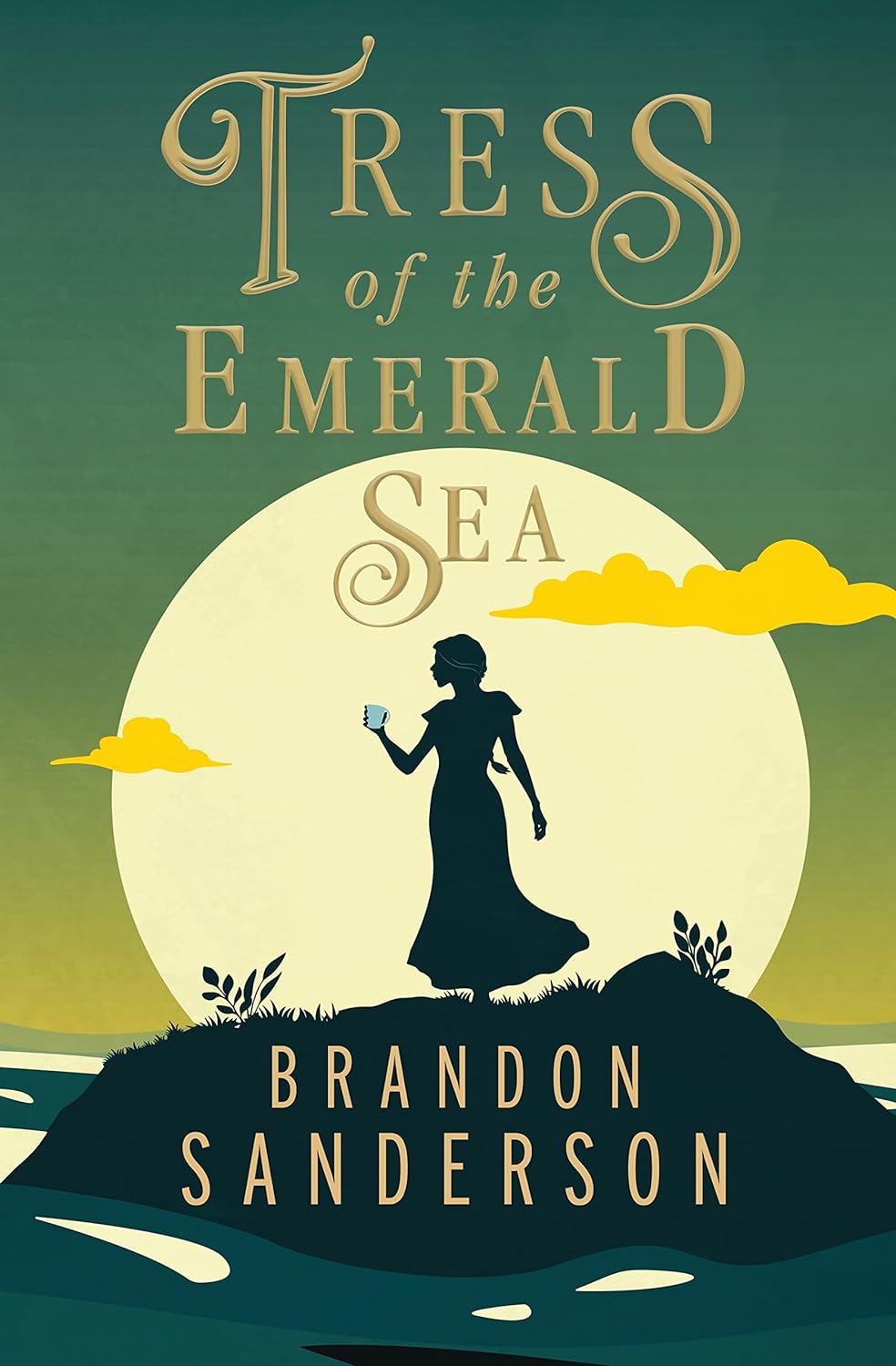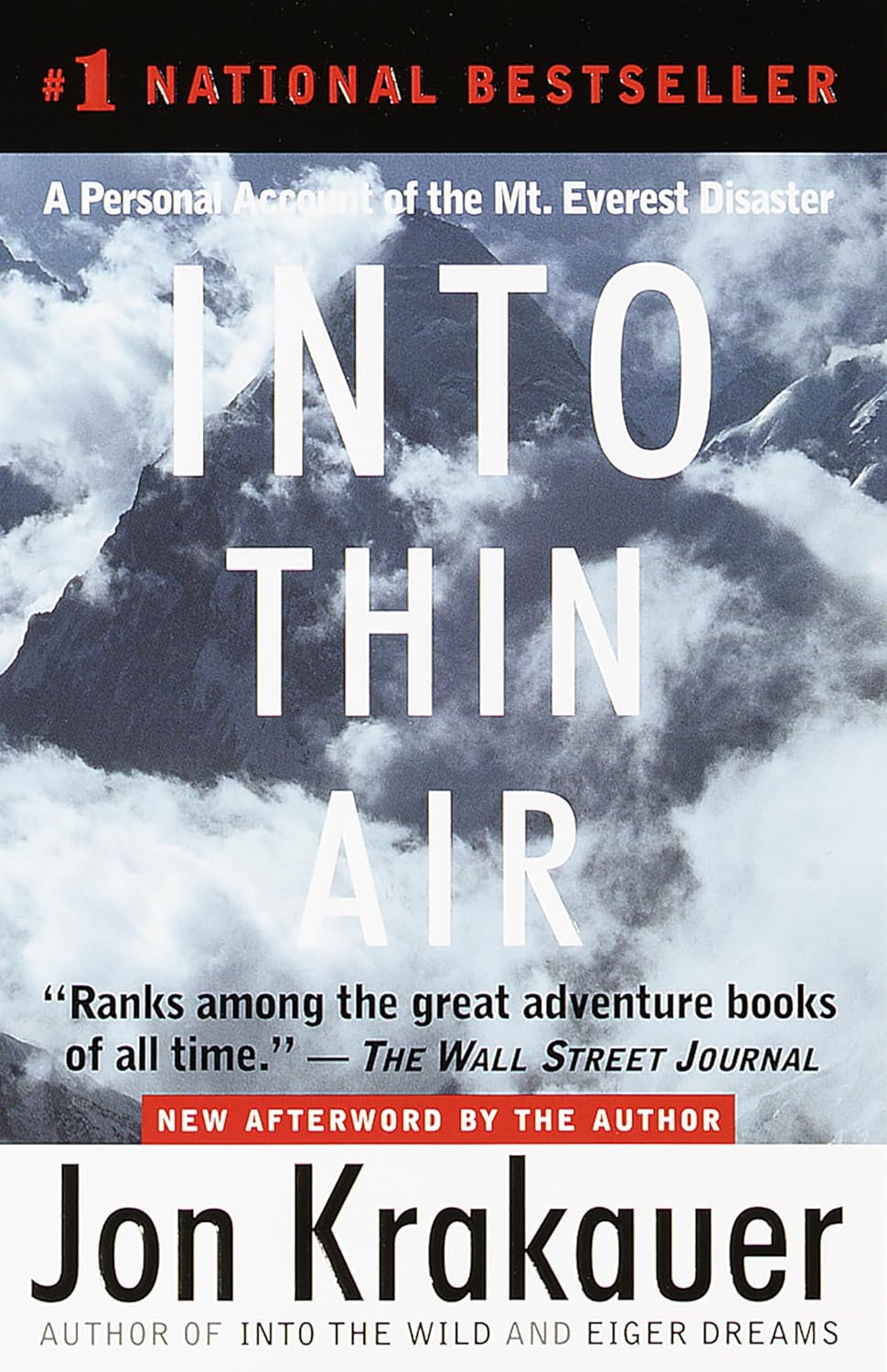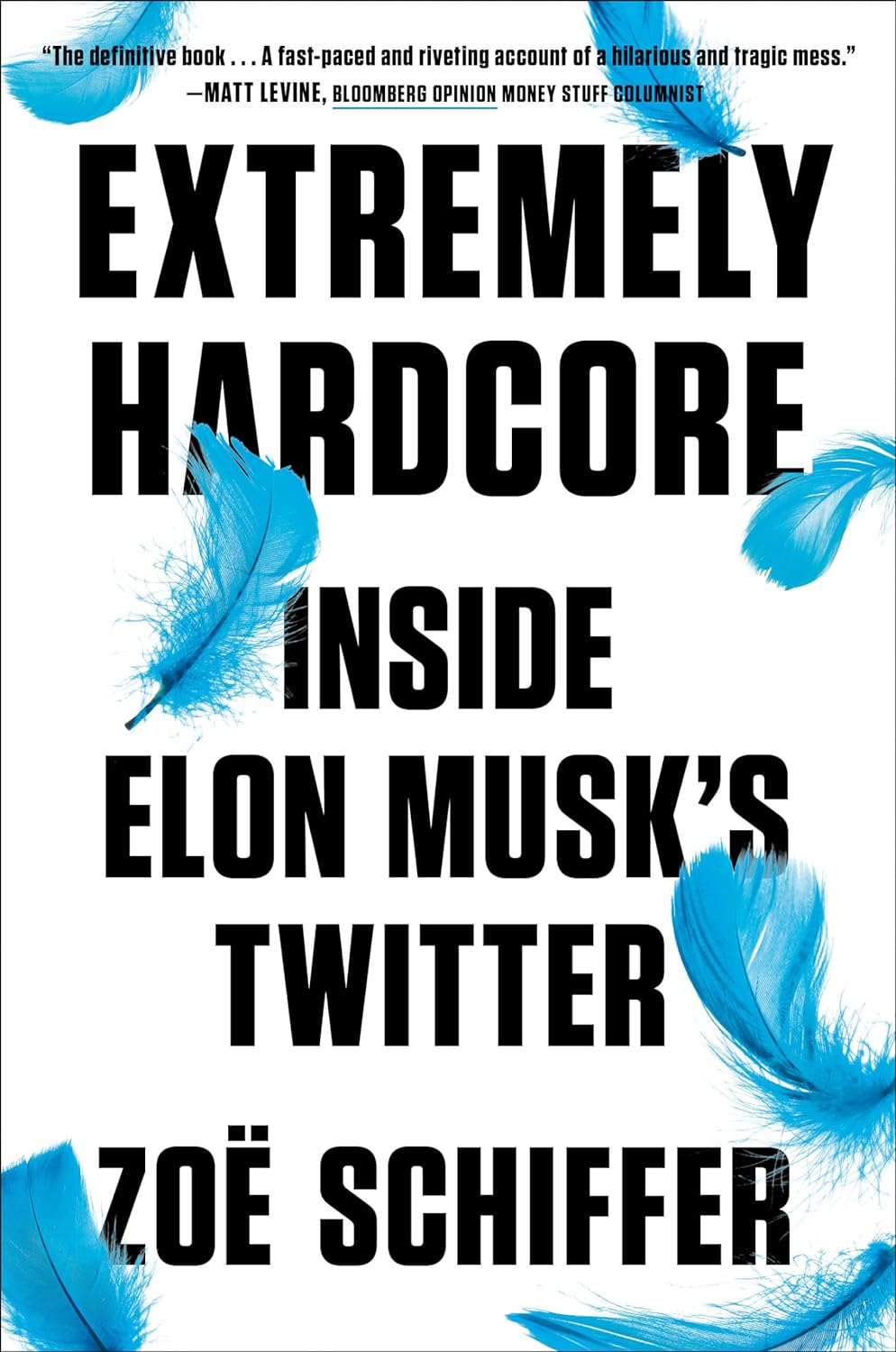2024 Reading List
January 01 2024This is the reading list for 2024.
- Into the Wild by Jon Krakauer
- Tress of the Emerald Sea by Brandon Sanderson
- Fake History by Jo Hedwig Teeuwisse
- Into Thin Air by Jon Krakauer
- Extremely Hardcore: Inside Elon Musk's Twitter by Zoë Schiffer
Into the Wild by Jon Krakauer

I wanted an “adventure” book and settled on this book given how widely recommended it is. I’m aware that there’s a movie made about it, but I hadn’t seen it, and now I don’t intend to see it. The book is very good - I can completely understand why it’s so highly recommended. It’s well written, suspenseful, curious, really all the things you would associate with the subject matter. However, I did find myself mostly yelling in my head at the protagonist and his quixotic, romantic, deeply naive sense of the world.
The book is centered on Christopher McCandless a young man who had just graduated from college, who decides to travel alone as a means of self-discovery. McCandless is clearly a very charming person - this is obvious from the many relationships that he develops on his travels, and recreated by the author’s interviews with those people. However, I got the sense that McCandless is either a really smart dumb person, or a really dumb smart person. Ultimately, he’s probably the former, which is how he got himself into an unsurvivable situation and ultimately died. Also, in the end, it’s entirely unclear what exactly he was rebelling against. He didn’t really seem to have any real goals. I’m sure he died as a very fulfilled person, but his life is definitely not the life for me.
The only criticism I have of the book itself is that it’s probably a little too short on actual material to be a book. It really should be a really long magazine feature, which is what it was originally. There is a lot of fluff, including the author’s own experiences with mountaineering and surviving in the wild. I will definitely read another Krakauer book at some point, most likely his own telling of a harrowing Mt. Everest climb.
Tress of the Emerald Sea by Brandon Sanderson

Continuing on the theme for adventure, I decided to switch it up and read a fiction book for the first time in a while. I had never heard of the author or the “world” that this book hails from, but it was recommended by Joanna Robinson in a Ringer podcast. I am extremely glad for the recommendation - this is one of the best works of fiction I have read, and probably my favorite since I read the Three Body Problem.
The inspiration for this book is “The Princess Bride”, but what if the Princess took matters into her own hands and looked for Wesley. Tress is the titular character, and it’s amazing how much she grew on me as a character. She is very simple to start off with - her defining trait is her love for cups and collecting them. Over the stretch of many chapters, she smuggles herself off her island, becomes a pirate, invents new contraptions, makes loyal friends, and defeats a sorceress.
All of it is written with great detail and a pleasant tone. The narrator of the story is in fact a character of the story, and becomes increasingly more pivotal as the book goes along. One of the most interesting conceits of the world is that there are these different spores, which fall from the moon, and which all have different reactions to water. You (the reader) learn more about how these spores work along with Tress, as she is entrusted with becoming essentially the expert on them for her pirate ship.
I have no idea if this book will be turned into a movie, but it kind of seems inevitable to me at this point.
Fake History by Jo Hedwig Teeuwisse

I had high hopes for this book, but it was a little bit of a letdown. I discovered the author originally on Twitter. She would frequently debunk historical photos or facts, particularly calling out poor photoshop jobs or stories that didn’t make sense historically. Unfortunately, this book is written too much like a series of twitter posts. The author lists 101 fake history items, but each of them are extremely short to read, not more than a few minutes spread across 1-2 pages. She’s also very literal (which I guess historians should be), so some of what she is debunking is technically true, but maybe not in the spirit of what the historical post is meant to convey.
The biggest disappointment, though, is that the book kinda has no character. It’s written very factually, but because of that, it’s just not that interesting to read.
Into Thin Air by Jon Krakauer

I was aware of this book for a while, and I wanted to read the Krakauer’s other well-known work, Into the Wild, first. Well, this book exceeded all my expectations, and I think it might be one of the most incredible nonfiction true story accounts I’ve ever read. The book chronicles Krakauer’s climb of Mount Everest, and the tragedy of several other climbers dying from the trip. It is well written, tense, and exciting. Even as someone with no mountain climbing experience, it was very easy to follow along.
The central premise of the book was that climbing Mount Everest had become industrialized, and that anyone with enough money and in even decent shape could be shepherded up the mountain via expert guides. These guides teach the clients where to go and what to do, and they include several native sherpas to help and carry food and supplies. Predictably, everything goes wrong. Some of the clients just aren’t experienced enough to weather the elements. The guides compete with each other. One particular guide lets his ego override his responsibility, and possibly puts his clients at risk as a result. And finally, the weather doesn’t cooperate, and a huge storm shows up just as the climbers are at the summit, making it nearly impossible for many of them to come down. Ultimately, the ending is sad. Many people die. The author has a tremendous amount of survivors’ guilt.
Personally, while I have ramped up in many areas of adventure and exploration in my middle age, very high altitude mountain climbing has never interested me. I went through a hiking phase, and I am still currently in my skiing phase (I just recently skied down my first double black!). But this type of mountain climbing just sounds terrible, not just because of the cold and the craft, but especially because of the elevation. The book mentions so many very fit and able climbers that have nevertheless succumbed to elevation poisoning, and it just seems like making these climbs is a little bit like playing Russian roulette.
Extremely Hardcore: Inside Elon Musk's Twitter by Zoë Schiffer

We’re all living through Elon Musk’s…interesting transformation into whatever it is that he is now, highlighted by his purchase of and running of Twitter (now X.com). I was previously an avid Twitter user, like much of tech silicon valley. Since his takeover, and the extreme divisiveness and uptick of bot activity, I have sadly deleted Twitter and moved to Threads, where the experience just isn’t the same. This is a happy result, to be sure. I spend less time on my phone, and more time reading. But of course, a part of me misses those halcyon days where you could just log onto Twitter, and learn about whatever the outrage du jour was.
This book is basically a summary of the last 18 months, from Musk’s original interest in Twitter, to the purchase, to the absolute running of it into the ground. I completely inhaled this book. It is the classic definition of a page turner. It’s written in a very simple and conversational style, so it’s easy to read through many chapters in one sitting.
Ultimately, the book doesn’t reveal very much new beyond what we’ve already seen reported in many other places. The author, Schiffer, is on the front lines of much of that reporting, so it’s only appropriate that she wrote the book for it. One nice thing is the book shares some of the perspective of specific Twitter employees, although I wish there was more of that.
Taking a step back and thinking through this entire era, it really is the real life embodiment of the “the emperor has no clothes”. We all just assumed Musk was this genius business person / engineer, through his success with Tesla. But the more you peel back the covers, the more you realize that not only is he not a genius, he’s actually just kind a of a dumb narcissist. There’s a quote in the book from a very senior principal engineer of Twitter, which he gave after Musk’s first all hands after purchasing the company. I’m going to paraphrase, but the quote was “he (Musk) either hasn’t spent very long thinking about Twitter’s business, or he’s extremely dumb”. It turns out, that actually both were true.
comments powered by Disqus